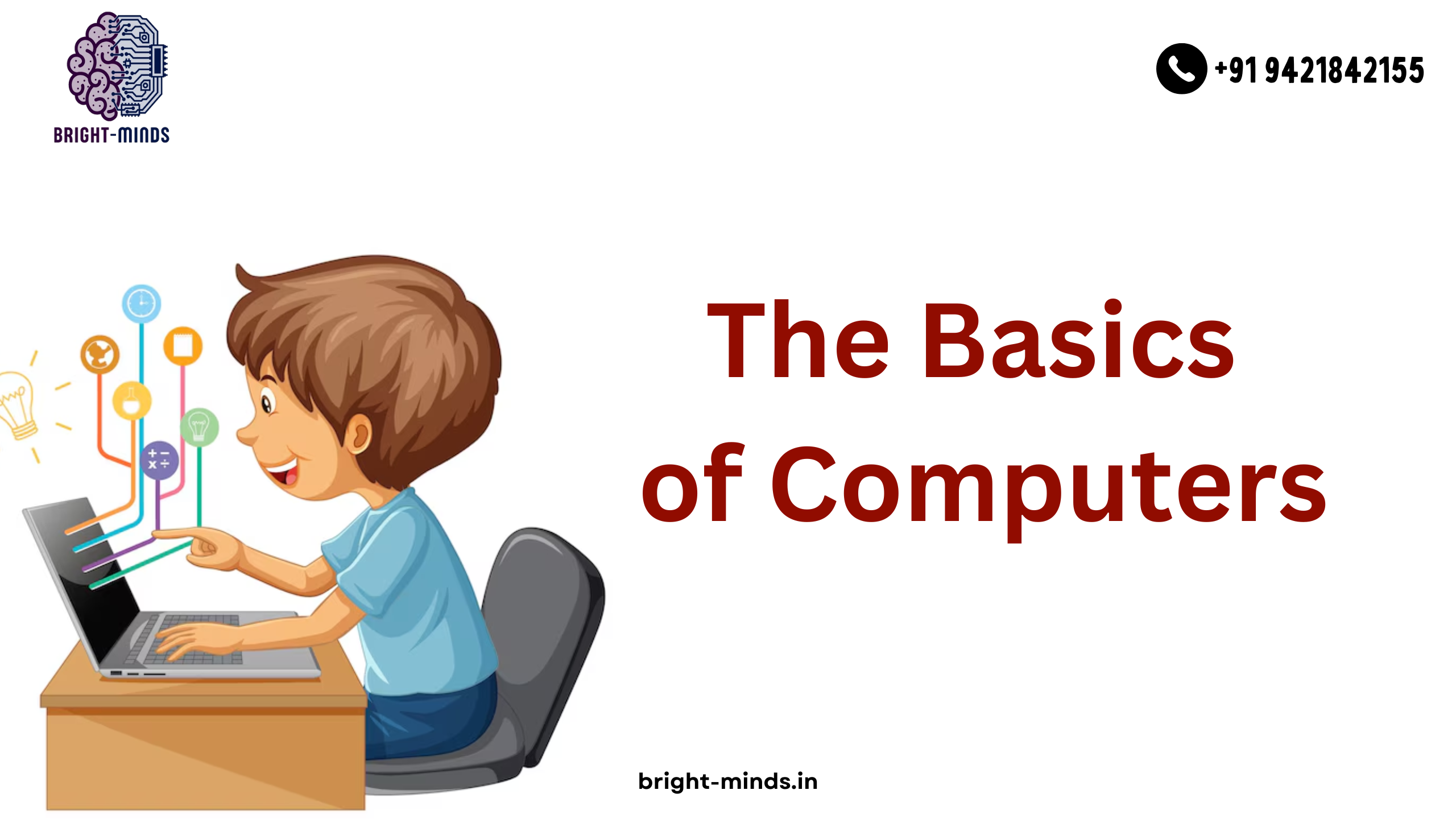Computers are become a necessary component of daily living in the digital world of today. Technology is all around us, from doing our homework to interacting with friends and discovering new concepts. However, have you ever pondered why teaching children about computers is so important? This blog will discuss the fundamentals of computers and the reasons that children should be exposed to them at a young age.
What is a Computer?
A computer is an electronic device that can store information, analyze data, do computations, and carry out commands to assist users in completing a variety of tasks. It is made up of software (programs) that allow the computer to operate and hardware (physical parts) such as the keyboard, display, and CPU.
The Basics of Computers for Kids
Understanding computers doesn’t have to be difficult or boring! Here’s a simple breakdown of the basics:
- Hardware vs. Software
- Hardware includes the physical parts you can touch, like the screen, keyboard, and mouse.
- Software is the invisible program that makes the computer work, like games, apps, and operating systems (like Windows or macOS).
- Input and Output Devices
- Input devices are tools like the keyboard and mouse that allow you to give commands to the computer.
- Output devices like the screen and printer show the results of your actions on the computer.
- Operating Systems
- Every computer needs an operating system (OS) to function. The OS is like a manager that tells the computer how to run programs and interact with hardware. Popular OS examples include Windows, macOS, and Linux.
- Basic Computer Programs
- Kids can learn to use simple programs such as word processors (like Microsoft Word) to write documents, drawing programs (like Paint), or even simple coding apps (like Scratch) to create their own games and animations.
Why Should Kids Learn About Computers?
Now that we know the basics, let’s dive into why it’s crucial for kids to start learning about computers early.
1. Prepares for Future Careers
Jobs in technology, ranging from digital marketers to software developers, are abundant in the future. Nearly every job in the modern world requires an understanding of how computers operate. Children who acquire the fundamentals of computers now will have more alternatives for careers in the future.
2. Enhances Problem-Solving Skills
Learning how to operate computers, use software, and solve technical issues helps kids develop critical thinking and problem-solving skills. Computers are tools that encourage creativity and innovation—whether it’s designing a simple game or solving a math problem using a calculator program. By experimenting with computers, kids become better problem solvers.
3. Improves Digital Literacy
Digital literacy is equally as vital as traditional literacy in today’s environment. Essential life skills include being able to operate a computer, do an internet search, and interact with others via social media or email. Children may use the internet responsibly, be safe online, and confidently navigate the digital world by learning the fundamentals of computers..
4. Boosts Creativity
Computers are not just for work and school—they can also be fun! Kids can use computers to create their own digital artwork, write stories, edit videos, or even make music. Learning how to use creative software tools gives children the freedom to express themselves in new ways.
5. Fosters Early Interest in Coding
Learning to code is similar to learning a new language, except that you are communicating with computers rather than humans. Teaching children to code teaches them to think logically, solve problems in little steps, and create projects from beginning to end. Children can begin coding at a young age with platforms like Scratch and Code.org, which will help them develop their future computer science abilities.
6. Encourages Collaboration and Teamwork
Many projects kids work on in computer-based learning are collaborative. Whether it’s sharing documents on Google Docs, creating a group project on a coding platform, or simply helping a friend solve a problem, learning about computers helps children work together more effectively and learn the value of teamwork.
How Can Kids Start Learning About Computers?
Getting started with computers is easier than you might think. Here are some tips for kids to start their journey into the world of technology:
- Explore Free Educational Websites
Websites like Scratch, Khan Academy, and Code.org offer free lessons on programming, game design, and other tech skills. These platforms are specifically designed for kids and make learning fun and interactive. - Use Child-Friendly Software
There are plenty of apps and programs made just for kids, from educational games to graphic design tools. Check out Tux Paint, Minecraft Education Edition, or even simple word processors like Google Docs. - Join Coding Clubs or Classes
Many schools and community centers offer coding clubs and classes. Joining these groups can help kids develop a deeper understanding of computers while meeting others with similar interests. - Create Digital Projects
Encourage kids to start their own projects, such as building a website, creating an animation, or making a short film. Hands-on experience is one of the best ways to learn.
Conclusion
Learning to code is similar to learning a new language, except that you are communicating with computers rather than humans. Teaching children to code teaches them to think logically, solve problems in little steps, and create projects from beginning to end. Children can begin coding at a young age with platforms like Scratch and Code.org, which will help them develop their future computer science abilities.
you may be interested in this blog here:-

